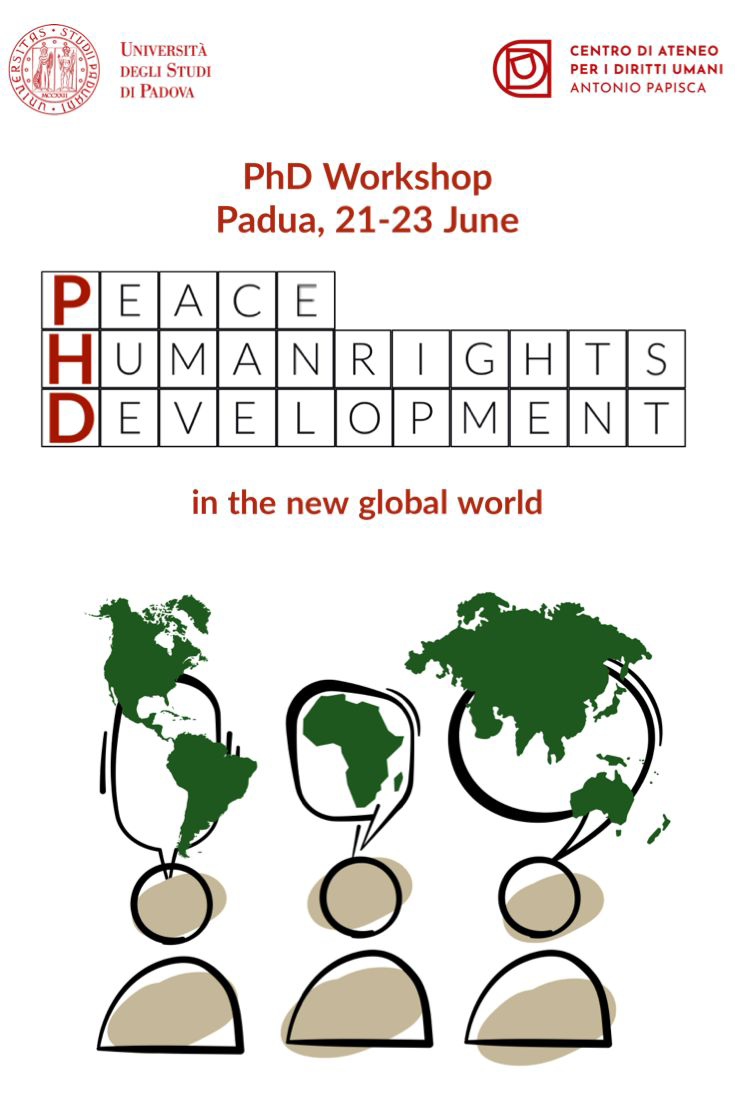Call for abstracts

The call is close
PANEL 1
Tackling Sustainability and Climate Change
Innovative policy perspectives and critical approaches
Since the UN General Assembly adopted a resolution recognizing the right to a clean, healthy, and sustainable environment as a human right, there is an even greater urge for intergovernmental cooperation to increase efforts to uphold a sustainable environment for all. This panel examines the intersection between sustainability, human rights, climate change, and governance. It aims to explore how climate is framed as a human rights issue, how it is used as political capital at the global level and how it shapes the development of policies, international relations, and approaches to human security. We welcome analysis of the multi-level governance in climate action, the role of state and non-state actors in mitigation-adaptation response to climate change, and critical perspectives on how climate governance could be reformed on EU level and beyond.
This panel approaches the topic from the point of view of political science, legal studies, international relations, economics, development studies, and other relevant disciplinary and interdisciplinary perspectives.
Suggested topics:
● State obligations after Paris Agreement - adaptation and mitigation practices
● Democracy and environmental justice
● Migration and climate change; recognition of climate refugees
● Climate change litigation
● Accountability of the multinational companies concerning the right to a clean, healthy, and sustainable environment
● Tackling the right to health, right to water, and right to food
● Human rights and Sustainable Development Goals
● Circular economy and environmental governance
PANEL 2
Marginalisation and Vulnerability
Perspectives on structural obstacles to the enjoyment of human rights
Marginalised groups are often defined as excluded from the economic, political, and civil life of the society to which they belong. The process of marginalisation occurs everywhere in the global society with few exceptions, generating a state of vulnerability. This frail condition is often caused by a multitude of factors and produces uncertainty.
Some groups appear to be more subjected to social exclusion than others. Roma people, migrants, people with disabilities or experiencing homelessness are examples of groups which are easily marginalised despite the different cultural contexts analysed. Inevitably, this process results in a progressive impediment when trying to access even basic human rights and difficulty to find solutions at a policy level.
The aim of the panel is to analyse and discuss how the condition of vulnerability and marginalisation may affect the enjoyment of social, economic and civil rights in the global society. Ultimately, it will suggest new ways to foster inclusiveness and human rights in multi-level governance frameworks.
Suggested topics:
● Definitions and methodologies related to vulnerability and marginalisation
● Marginalised groups (e.g., discrimination based on ethnicity, gender, sexual orientation, religion, etc.)
● Poverty and exploitation
● Analyses on Welfare state crisis’ consequences
● Role and Obligations of State and Non-State Actors
● Policy analysis (e.g., inclusion, social justice, education, etc.)
PANEL 3
Tackling a vanishing peace
Multidisciplinary responses to conflicts by peaceful means
Since armed conflicts are the breeding ground for massive human rights violations, peace is an indispensable condition to guarantee fundamental rights. Despite being such a core prerequisite for a dignified human existence, reaching it seems a never ending struggle. Accordingly, is it possible to affirm that peace is truly a shared goal? Humanity appears to be trapped in a vicious circle of armed conflicts and peace processes. In these conditions, the field of peace and conflict studies keeps moving between bottom-up and top-down tendencies, as well as collective and individual perspectives. As building peace is a deep-routed necessity for communities, its relevance involves many disciplines that can be addressed from a multi-level perspective.
In the face of such a complex scenario, this panel aims to provide a broad perspective on the local and international reactions to armed conflicts. It encourages a multidisciplinary discussion on peace and conflict management reflecting several dimensions, such as:
● The economical causes and impacts of armed conflicts and the links with geopolitics.
● Sociological analysis, including reflections about the relationship between media and communications with armed conflicts and the collective construction of identities.
● Historical roots of armed conflicts, its relationship with memory and unsolved tensions.
● Political Philosophy, understood as the moral and ethical framework for decisions and justifications behind military actions.
● Transitional Justice, intended as particular forms of justice to deal with past wrongdoings.
● International Law, that encompasses the international responses to conflicts at the judicial level as well as from international bodies; and the application of international norms to tackle the consequences deriving from conflicts, such as forced migration, trade and business and human rights.
ABSTRACTS PROPOSALS SUBMISSION
Abstracts in English of 350 words max (including the title) should be sent no later than April 30th by filling the following Google Form: https://forms.gle/qMAuKyAoGnFSKr488
Evaluation criteria
● Relevance and coherence of the proposal to the workshop topics
● Conciseness, coherence, clarity, and focus of the paper
● Methodology; research design and results
● Originality
Key dates and deadlines
Key dates and deadlines
● Call opens: March 13th 2023
● Deadline for submitting abstracts: April 30th 2023
● Selection outcome (via email): by May 7th 2023
● Selected applicants should confirm their participation via email by May 14th 2023
Fee: No fee.

